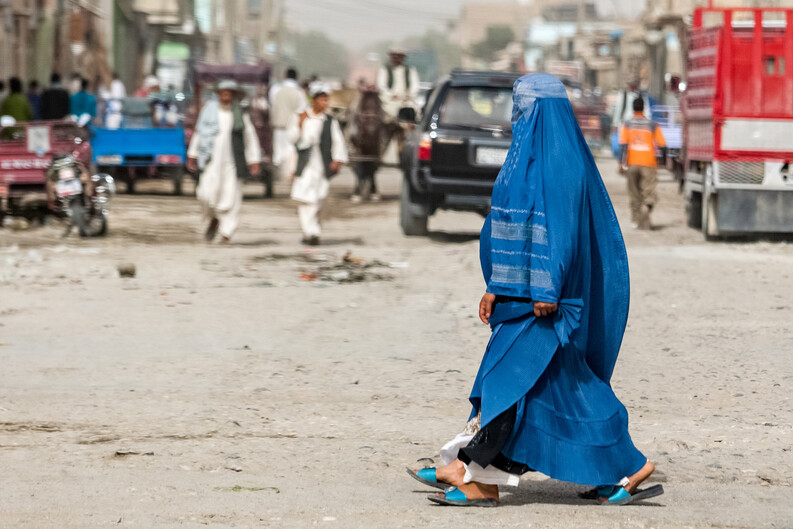UN Working Group Condemns Gender Apartheid in Statement with Lowenstein Clinic Contribution

The United Nations Working Group on Discrimination Against Women and Girls has issued a statement urging the international community to recognize gender apartheid as a crime against humanity, highlighting the situation of women and girls in Afghanistan. The Feb. 20 statement’s authors include Clinical Professor of Law Claudia Flores, whose students contributed to the statement.
Flores is a member of the working group for the region known as Western Europe and Other States. At Yale Law School, she is the Faculty Co-Director of the Orville H. Schell Jr. Center for International Human Rights and Director of the Allard K. Lowenstein International Human Rights Clinic.
In its statement with contributions from the Lowenstein Clinic, the working group warned that Taliban rule has subjected Afghan women and girls to an institutionalized system of discrimination, oppression and domination that can be understood only as gender apartheid. The group, made up of five legal experts from around the world, stressed that the ongoing deprivation of Afghan women’s and girls’ rights makes the swift recognition of gender apartheid imperative.
The experts called upon the U.N. General Assembly to help rectify injustices such as those in Afghanistan by recognizing gender apartheid under Article 2 of the draft articles on the prevention and punishment of crimes against humanity, which are currently under their consideration. The working group and other stakeholders’ submissions are currently under review by Member State representatives. The UNGA Sixth Committee is scheduled to discuss the draft articles at its 79th Session this upcoming October.
We hope that recognizing gender apartheid as a specific, distinct crime against humanity allows the world to better identify and address attacks on women and girls everywhere.”
— Clinical Professor of Law Claudia Flores
“The draft articles give the international community a unique chance to name and condemn gender apartheid,” Flores said. “We hope that recognizing gender apartheid as a specific, distinct crime against humanity allows the world to better identify and address attacks on women and girls everywhere.”
While existing gender-specific crimes such as gender persecution continue to be useful for combatting injustice, the working group noted, they fail to capture the institutionalized and widespread nature of gender apartheid. The experts stressed that only the apartheid framework can fully convey the role of intent, ideology and institutionalization present in regimes like the Taliban.
Under Flores’s supervision, Rossella Gabriele ’25, Andrea Deleon Cruz ’24, Philsan Isaak ’25, Helen Malley ’24, Laura Roberts ’24, and Schell Center Community Human Rights Fellow Shannon Sommers helped contribute to the drafting process.
"It was an honor to help formulate the legal arguments for prohibiting gender apartheid,” Gabriele said. “Working alongside our women-led clinic team and in solidarity with Afghan women leaders was an especially rewarding experience.”
The Allard K. Lowenstein International Human Rights Clinic at Yale Law School undertakes projects on behalf of human rights organizations and individual victims of human rights abuses. The goals of the Clinic are to provide students with practical experience that reflects the range of activities in which lawyers engage to promote respect for human rights, to help students build the basic knowledge and skills necessary to be effective human rights advocates, and to contribute to efforts to protect human rights through assistance to organizations and individuals.


